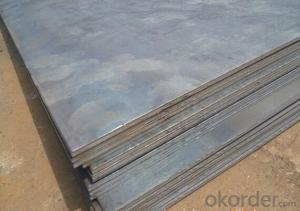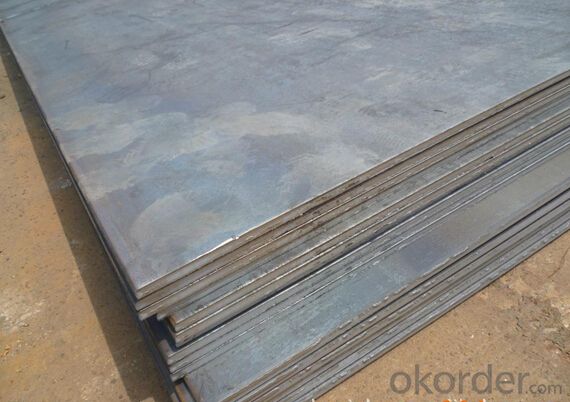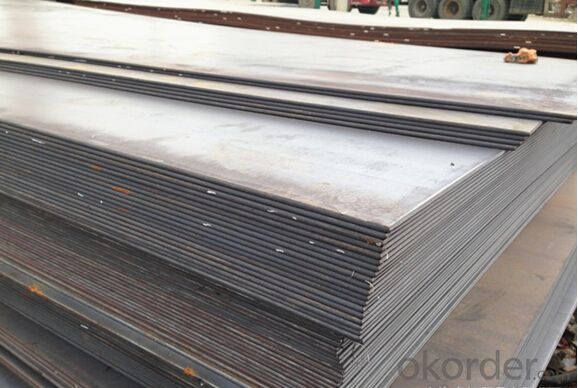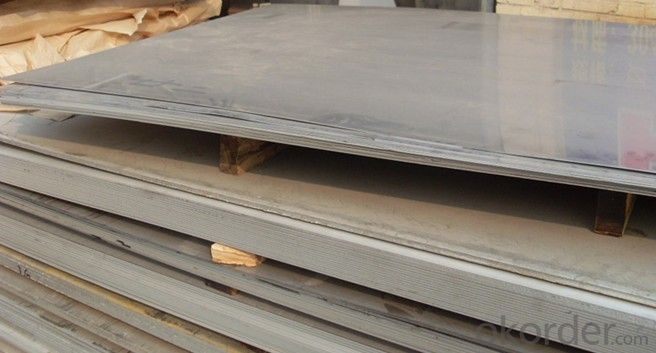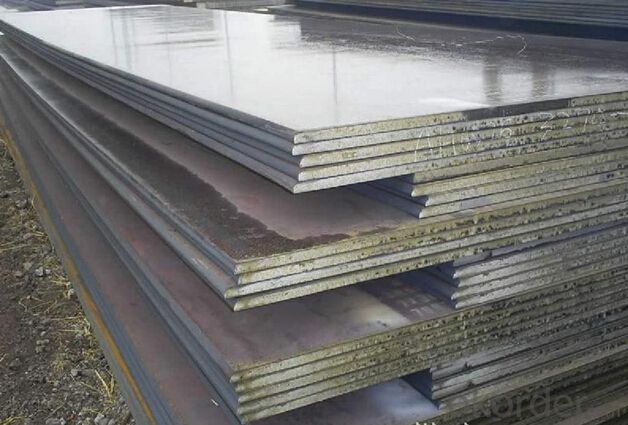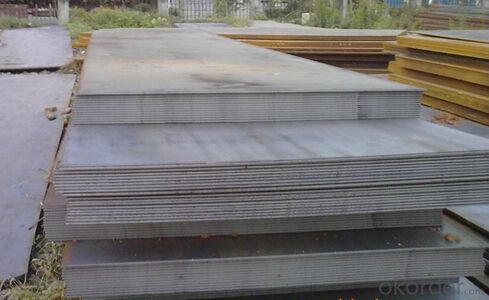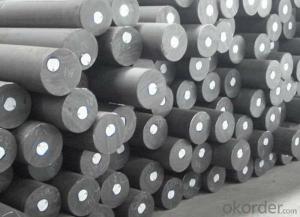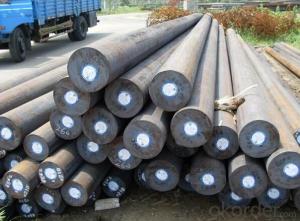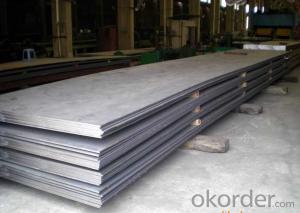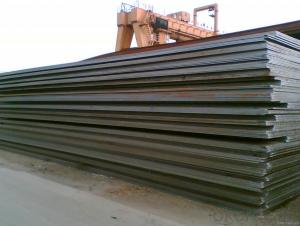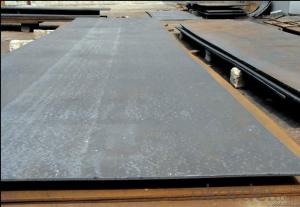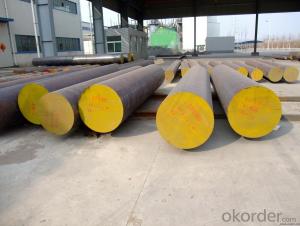DIN.1.2080Alloy Tool Steel D3 Mild Steel Plate in Stock
- Loading Port:
- Tianjin
- Payment Terms:
- TT OR LC
- Min Order Qty:
- 3 m.t.
- Supply Capability:
- 100000 m.t./month
OKorder Service Pledge
OKorder Financial Service
You Might Also Like
Specification
DIN.1.2080Alloy Tool Steel D3 Mild Steel Plate in Stock
Detailed Information of DIN.1.2080Alloy Tool Steel D3 Mild Steel Plate in Stock
| C | Si | P | S | yield Strength MAp | Tensile strength MAp | Elongation % | ||
| A36 | 0.24 | 0.4 | 0.045 | 0.03 | 250 | 400-520 | 26 | |
| C | Si | Mn | P | S | Cu | |||
| A283 | ≤0.27 | 0.15-0.4 | ≤0.9 | ≤0.035 | ≤0.04 | ≥0.2 | ||
| Thickness: | 6mm, 8mm, 12mm, 16mm, 20mm, 25mm, 30mm, 50mm, 80mm, 100mm, 150mm, 200mm | |||||||
| Width: | 1500mm, 1800mm, 2000mm, 2200mm, 2500mm | |||||||
| Length: | 6000mm, 8000m, can cut to width and length | |||||||
| Packing Details; | according to customer‘s require or export’s standard | |||||||
| Delivery time; | 7 days for stock sizes, 20-25 days for new production sizes | |||||||
| Port: | Tianjin China | |||||||
Related Products Overviews of DIN.1.2080Alloy Tool Steel D3 Mild Steel Plate in Stock
Product Name | Typical Grades | Diameter(mm) | Standard Adopted |
Carbon Steel | 20 (1020/S20C/C22) |
Ø16-Ø300 |
GB/SAE/ JIS/DIN |
40 (1040/S40C/C40) | |||
45 (1045/S45C/C45) | |||
Bearing Steel | GCr9 (51100/SUJ1) |
Ø12-Ø250 | |
GCr15 (52100/SUJ2/100Gr6) | |||
GCr9SiMn (A485-Gr.1/SUJ3) | |||
Cr-Mo Steel | 20Cr (5120/SCr420H/20Cr4) |
Ø12-Ø250 | |
40Cr (5140/SCr440/41Cr4) | |||
42CrMo(4140/SCM440/42CrMo4) | |||
Gear Steel | 20CrNiMo |
Ø16-Ø600 | |
20CrMn(5115/SMnC420/20MnCr5) | |||
20CrNiMo(8620/SNCM220/20CrMiMo2) |
Related Products Application of DIN.1.2080Alloy Tool Steel D3 Mild Steel Plate in Stock
Carbon Steel | l Mold bottom l Plastic mold l Construction machinery parts l Automobile parts l Security grills l Screens l Construction |
Bearing Steel | l Aerospace l Navigation l Nuclear energy l Chemical industry l Electronic information l Petrochemical l Instrument and meter l Transportation |
Cr-Mo Steel | l Mechanism & Fasteners gear l Stressed components for vehicles l Engines and machines l Parts of larger cross-section |
Gear Steel | l All kinds of gears l Statically and dynamically stressed component for vehicles l Engines and machine l Larger cross-section parts l Crankshafts |
Company Introduction of DIN.1.2080Alloy Tool Steel D3 Mild Steel Plate in Stock
CNBM International Corporation is the most import and export platform of CNBM group(China National Building Material Group Corporation) ,which is a state-owned enterprise, ranked in 270th of Fortune Global 500 in 2015.
With its advantages, CNBM International are mainly concentrate on Cement, Glass, Iron and Steel, Ceramics industries and devotes herself for supplying high quality series of refractories as well as technical consultancies and logistics solution.
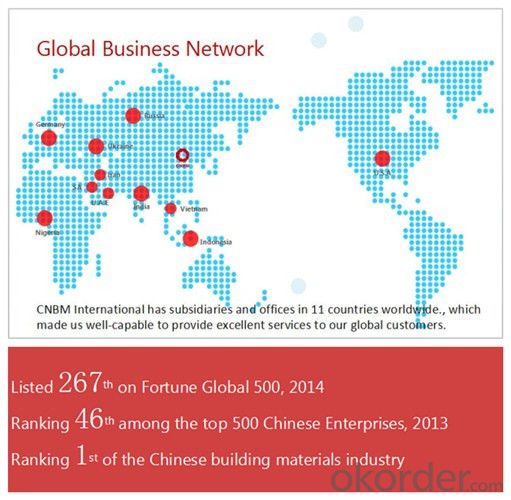
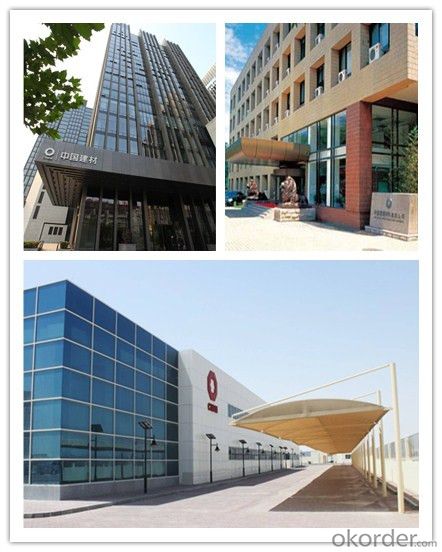
After-sale service | l CNBM provides the services and support you need for every step of our cooperation. We’re the business partners you can trust; you can relax and get on with doing business. l For any problem, please kindly contact us at any your convenient time, we’ll reply you in our first priority within 24 hours
|
Advantages
| l Industry experience over 20 years. l Shipment of goods -More than 70 countries worldwide. l The most convenient transport and prompt delivery. l Competitive price with best service. l High technical production line with top quality products. l High reputation based on best quality products.
|
Packaging & Delivery of DIN.1.2080Alloy Tool Steel D3 Mild Steel Plate in Stock
Packaging Detail | Sea worthy packing /as per customer's packing instruction |
Delivery Detail | 15 ~ 40 days after receiving the deposit |
Products Show
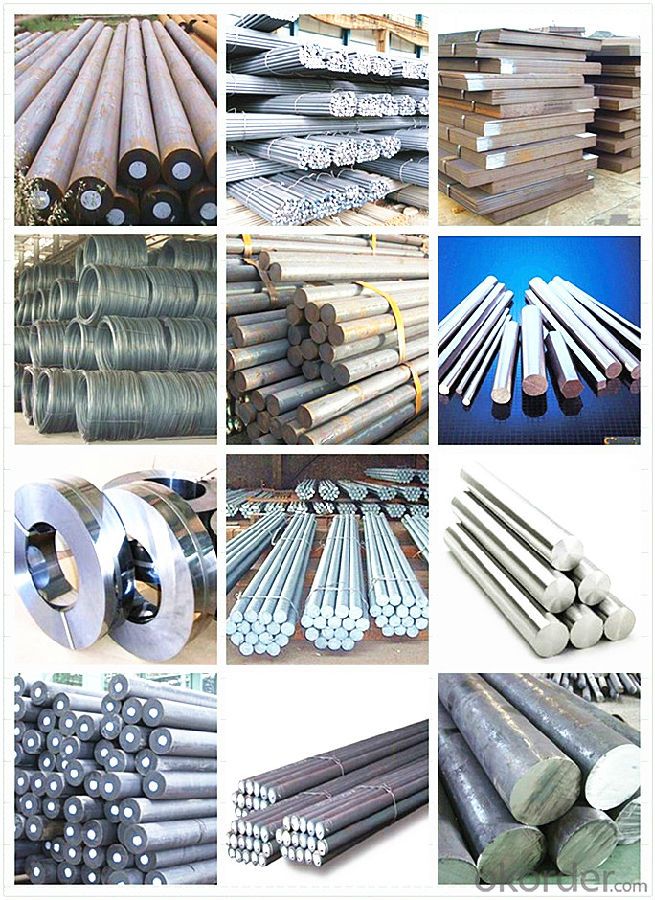
FAQ:
Are you a trading company or manufacturer? | Manufacturer |
What’s the MOQ? | 3 metric ton |
What’s your delivery time? | 15-35 days after downpayment received |
Do you Accept OEM service? | Yes |
what’s your delivery terms? | FOB/CFR/CIF |
What's the Payment Terms? | 30% as deposit,70% before shipment by T/T |
Western Union acceptable for small amount. | |
L/C acceptable for large amount. | |
Scrow ,Paybal,Alipay are also ok | |
Why choose us? | Chose happens because of quality, then price, We can give you both. Additionally, we can also offer professional products inquiry, products knowledge train (for agents), smooth goods delivery, excellent customer solution proposals. |
What's your available port of Shipment? | Main Port, China |
What’s your featured services? | Our service formula: good quality+ good price+ good service=customer's trust
|
Where are your Market? | Covering more than 160 countries in the world |
- Q: Can special steel be used in the nuclear power industry?
- Yes, special steel can be used in the nuclear power industry. Special steel, such as stainless steel or alloy steel, is often used for various components in nuclear power plants due to its high strength, corrosion resistance, and ability to withstand high temperatures and radiation. These steels are utilized in reactor vessels, steam generators, piping systems, and other critical structures to ensure the safety and reliability of nuclear power plants.
- Q: What are the different power generation grades of special steel?
- There are several different power generation grades of special steel used in various applications within the power generation industry. These grades are specifically designed to withstand high temperatures, pressures, and corrosive environments encountered in power plants. One common grade is known as 9Cr-1Mo-V steel, also referred to as Grade 91. It is a high-strength, low-alloy steel that is widely used in the construction of boiler components such as headers, tubes, and turbine rotors. Grade 91 steel offers excellent creep strength, oxidation resistance, and thermal stability, making it suitable for high-temperature operations. Another grade commonly used in power generation is 12Cr-1Mo-V steel, also known as Grade 11. It is primarily used in the fabrication of superheater and reheater tubes for power boilers. Grade 11 steel exhibits good high-temperature strength, corrosion resistance, and weldability, making it ideal for these applications. Additionally, there is a grade called 2.25Cr-1Mo steel (Grade 22) which is often used in the construction of pressure vessels and piping systems in power plants. It has excellent creep resistance, high-temperature strength, and resistance to hydrogen attack, making it suitable for critical components in power generation facilities. Furthermore, there are other specialized grades like 5Cr-0.5Mo steel (Grade 5) and 9Cr-0.5Mo steel (Grade 9) that are used in specific power generation applications where elevated temperatures and pressures are encountered. These grades offer a combination of strength, corrosion resistance, and thermal stability to ensure reliable performance in demanding environments. In summary, the power generation industry utilizes various grades of special steel specifically designed to meet the unique requirements of power plants. These grades provide high-temperature strength, corrosion resistance, and other essential properties necessary for efficient and reliable power generation operations.
- Q: How does special steel contribute to the construction aftermarket industry?
- Special steel contributes to the construction aftermarket industry by offering enhanced strength, durability, and corrosion resistance. It enables the construction of high-rise buildings, bridges, and other infrastructure projects that require superior performance and safety. Additionally, special steel allows for the use of lighter and more efficient designs, reducing costs and environmental impact. Overall, it plays a crucial role in pushing the boundaries of construction capabilities and meeting the growing demands of the industry.
- Q: What are the different methods of surface thermal spraying for special steel?
- There are several different methods of surface thermal spraying for special steel, including flame spraying, arc spraying, plasma spraying, and high-velocity oxy-fuel (HVOF) spraying. Each method involves heating and melting a coating material, which is then propelled onto the steel surface to form a protective layer. These methods offer varying levels of coating thickness, adhesion, and durability, depending on the specific requirements of the application.
- Q: What is the significance of special steel in the medical field?
- Special steel is of great significance in the medical field due to its unique properties and characteristics. It is used to manufacture surgical instruments, implants, and medical devices that require high strength, corrosion resistance, and biocompatibility. Special steel ensures the safety and effectiveness of medical interventions, contributing to improved patient outcomes and overall healthcare advancements.
- Q: How does special steel contribute to reducing greenhouse gas emissions?
- Special steel can contribute to reducing greenhouse gas emissions in several ways. Firstly, special steel is often used in the construction of energy-efficient buildings and infrastructure, which helps to reduce the energy consumption and carbon emissions associated with heating, cooling, and transportation. Additionally, special steel can be utilized in the manufacturing of more lightweight vehicles and machinery, leading to improved fuel efficiency and lower emissions. Furthermore, special steel is also employed in renewable energy technologies such as wind turbines and solar panels, helping to promote the adoption of clean energy sources and reduce reliance on fossil fuels. Overall, the unique properties of special steel enable the development of more sustainable solutions across various industries, thereby contributing to the reduction of greenhouse gas emissions.
- Q: How is mold steel used in injection molding?
- Mold steel is used in injection molding as it possesses high toughness, wear resistance, and heat resistance properties. It is used to manufacture molds or dies that are used in injection molding machines to shape molten plastic into desired products. The mold steel is capable of withstanding the high pressure and temperature of the molten plastic, ensuring the production of precise and high-quality plastic components.
- Q: What are the specific requirements for special steel used in the nuclear waste storage industry?
- The nuclear waste storage industry has stringent and critical requirements for special steel to guarantee the safety and long-term viability of storage facilities. These requirements are driven primarily by the need to mitigate risks associated with nuclear waste, such as radiation leakage and corrosion. One key requirement is the need for high strength and durability. Special steel used in nuclear waste storage must possess exceptional mechanical properties to withstand the weight and pressure exerted by waste containers and the surrounding environment. This includes resistance to deformation, fracture, and fatigue, as well as the ability to maintain structural integrity for an extended period. Another essential requirement is excellent corrosion resistance. Nuclear waste contains highly corrosive substances that can degrade regular steel over time. Therefore, special steel used in the nuclear waste storage industry must have enhanced corrosion resistance to ensure long-term durability and prevent leakage of radioactive materials. Furthermore, the steel must have a low susceptibility to stress corrosion cracking (SCC). SCC occurs when a combination of tensile stress, corrosive environment, and specific material conditions result in crack initiation and propagation. To maintain the integrity of containers and minimize the risk of leakage, the steel used must be highly resistant to SCC. Radiation resistance is also critical for special steel used in nuclear waste storage. The steel should exhibit minimal degradation or embrittlement when exposed to high levels of radiation. This is necessary to maintain the structural integrity of storage containers and prevent any weakening that could compromise waste containment. In addition, the special steel used in the nuclear waste storage industry must comply with strict regulatory standards and certifications. It must meet specific design codes and guidelines set by regulatory authorities to ensure compliance with safety regulations and minimize potential hazards. In conclusion, the special steel used in the nuclear waste storage industry must meet specific requirements, including high strength, durability, corrosion resistance, low susceptibility to stress corrosion cracking, radiation resistance, and compliance with regulatory standards. These requirements are essential for maintaining the safety and integrity of storage facilities and preventing any leakage or release of radioactive materials into the environment.
- Q: How does special steel contribute to the elasticity of products?
- Special steel contributes to the elasticity of products due to its unique composition and manufacturing process. The elasticity of a material refers to its ability to return to its original shape or size after being deformed or stretched. In the case of special steel, its specific properties enhance the elasticity of products in several ways. Firstly, special steel is often alloyed with elements such as nickel, chromium, or vanadium, which improve its mechanical properties. These alloying elements modify the crystal structure of the steel, resulting in a material that has a higher yield strength and tensile strength. This increased strength allows the steel to withstand higher levels of stress and deformation without permanent deformation or failure. Additionally, the manufacturing process of special steel involves precise control over its microstructure. Through techniques such as heat treatment and cold working, the steel's grain size and distribution are optimized. This controlled microstructure enhances the material's elasticity by promoting a uniform deformation mechanism. When a product made from special steel is subjected to external forces or stress, the steel's microstructure allows for the redistribution of these forces, minimizing localized deformation and maximizing overall elasticity. Furthermore, special steel often possesses a high carbon content, which contributes to its elasticity. The carbon atoms within the steel form strong chemical bonds with the iron atoms, resulting in a material with increased hardness and resistance to deformation. This enhanced resistance to deformation allows the steel to exhibit greater elasticity when subjected to external forces. Overall, special steel's unique composition, precise manufacturing processes, and specific alloying elements all contribute to its ability to enhance the elasticity of products. By incorporating special steel into the design and construction of various products, manufacturers can ensure that these products can withstand deformation and return to their original shape, thus increasing their durability and longevity.
- Q: How does special steel perform in high-frequency applications?
- Special steel, also known as high-speed steel (HSS), performs exceptionally well in high-frequency applications. This type of steel is specifically designed to withstand the extreme heat and stress generated in high-speed machining operations. The unique composition of special steel, which typically includes elements such as tungsten, molybdenum, cobalt, and vanadium, provides it with remarkable hardness, toughness, and wear resistance. These properties make it highly suitable for use in high-frequency applications where the material is subjected to rapid cutting speeds and frequent abrasion. Due to its excellent hardness, special steel can maintain its cutting edge even at elevated temperatures, ensuring superior performance in high-frequency applications. It exhibits minimal deformation or loss of cutting efficiency, which results in improved productivity and extended tool life. Moreover, its exceptional wear resistance allows it to withstand the constant friction and heat generated during high-speed machining operations, preventing premature tool failure. Furthermore, special steel possesses excellent thermal conductivity, which helps dissipate the heat generated during high-frequency applications. This feature is crucial for maintaining dimensional stability and preventing the material from warping or distorting under extreme temperatures. As a result, special steel tools can maintain their precision and accuracy even during prolonged high-frequency operations. In summary, special steel is highly effective in high-frequency applications due to its exceptional hardness, toughness, wear resistance, and thermal conductivity. Its ability to withstand extreme heat and stress, while maintaining cutting performance and dimensional stability, makes it the preferred choice for industries such as aerospace, automotive, and manufacturing where high-speed machining is essential.
Send your message to us
DIN.1.2080Alloy Tool Steel D3 Mild Steel Plate in Stock
- Loading Port:
- Tianjin
- Payment Terms:
- TT OR LC
- Min Order Qty:
- 3 m.t.
- Supply Capability:
- 100000 m.t./month
OKorder Service Pledge
OKorder Financial Service
Similar products
Hot products
Hot Searches
Related keywords
